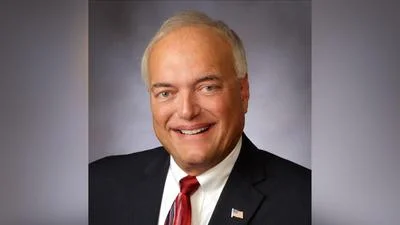MOUNT VERNON – There is one thing you will need to do after weight-loss surgery at Knox Community Hospital.
Clothes shopping. You will need smaller sizes.
“The patients usually like that,” the hospital’s Dr. Aevan McLaughlin told the Mount Vernon News. “They talk about how they hadn’t liked shopping before, but now they do because they feel happy to wear the clothes.”
That’s only one of the positive benefits of weight-loss surgery, McLaughlin said. It can also cure Type 2 diabetes.
It increases life expectancy and decreases other chronic health problems like high blood pressure and sleep apnea. It can also reduce the chances of developing heart problems, liver issues and even some cancers.
“Lots of people are living longer and healthier,” McLaughlin said.
The surgery can be covered by private insurance, Medicare and Medicaid.
Patients who are at risk of having diabetes, who have a family history of the disease, can prevent it through weight-loss surgery, the doctor noted.
Some patients describe trying as many as 20 different diets before having surgery, McLaughlin said.
“The patients that I have usually tried so many different things throughout their life,” she said. “We know from different studies that just diet and exercise alone are usually not sufficient. These people feel really discouraged. But it’s not anything they are doing. It’s just that we know the way obesity works, (and) a lot of things are just not enough.”
Surgery is able to change hormonal pathways in your body that cause you to regain weight.
“It works in ways that diet and exercise aren’t able to,” McLaughlin said.
But diet and exercise still remain important even after surgery.
“We have the Healthy Habits program where the patient can meet with an exercise physiologist, wellness coach, dietician and nurse practitioner to make sure the surgery remains successful,” McLaughlin said. “We’re involved life-long. If they are having any issues in the future, we’re there for them.”
Patients are usually in the hospital for one to two nights for the surgery and could be back to work in two weeks, the doctor said.
“Most people tell me they wish they had done the surgery sooner,” McLaughlin said. “They’re always telling me how much more energy they have and how they are able to do a lot more things. It’s like a new lease on life.”







